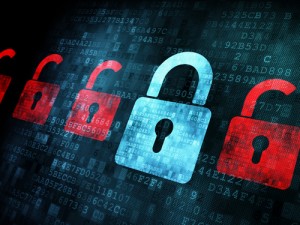- 8shares
- 5
 It’s so convenient to have one account for everything; you can keep track of all your friends and acquaintances in various social networks, share your locations and hundreds of pictures, buy everything online with your credit card, and much more. But that’s when the boundaries of our privacy online start to become transparent. Your whole life is being shown to all the people who have Internet access. Website owners know your name and you are visiting their resources thanks to social networks. That’s pretty weird when you think about it, right? That’s why today we will tell you how to maintain privacy on the Internet.
It’s so convenient to have one account for everything; you can keep track of all your friends and acquaintances in various social networks, share your locations and hundreds of pictures, buy everything online with your credit card, and much more. But that’s when the boundaries of our privacy online start to become transparent. Your whole life is being shown to all the people who have Internet access. Website owners know your name and you are visiting their resources thanks to social networks. That’s pretty weird when you think about it, right? That’s why today we will tell you how to maintain privacy on the Internet.
Use Tor browser
Tor is a browser that provides a secure connection to the Internet, all your data and the Internet traffic. Another huge plus of Tor is the possibility to open hidden websites, websites that are blocked by your Internet provider or country by their host. With Tor you can stay anonymous and secure at the same time.
Use anonymous search engines
The advantage of anonymous search engines is that they are not tracking or monitoring your data. It doesn’t give you information based on your profile, previous searches or anything else; it proceeds to conduct a pure search in the Internet. Switch to DuckDuckGo or StartPage instead of your usual search engines.
Log out of all social accounts
Always log out from all your social networks as soon as you are done using them. If you stay logged in and then visit other resources where the social account elements are involved, your account will keep the history of your visits and you’ll be offered contextualized ads all over Facebook and other networks based on them.
Have a separate email for Internet purposes
It’s a common practice today to sign up for newsletters, have accounts on various websites and use email for personal and professional purposes. Recently it has become popular to unify all the accounts, but this is not a great idea at all. Use a detached email that you’re ok with giving out to everyone and keep another one as a primary one for your work and/or family and friends etc.
Never open spam emails
As soon as you get a spam email and you open it, there might be a trigger inside to check if your email is live. So you open one and a hundred similar emails come to you after that. Obviously, never ever follow the links in such emails or download and/or open attached files.
Always read terms and conditions
Don’t be like Kyle in that episode of South Park; spend a couple of minutes to get to know all the terms and conditions of websites or online services you are using. If you don’t read them then how do you know all your personal information is safe and won’t be revealed?
Avoid cloud storages
There is no doubt that keeping your data somewhere online on a cloud server is awesome and has become highly popular today. But think about another way: your personal data is being kept on some other computer. Obviously, the safety and anonymity is promised, but we all know that things happen.
Don’t use unknown Wi-Fi spots
Yes, we might be watching a little too much of Mr. Robot, but if you are using an open Wi-Fi network there is a big possibility of remotely accessing your PC or laptop along with a chance of catching a virus that can damage or lock your device as well. Avoiding this is easy – only use trustworthy hotspots.
Be careful with credit cards
Provide your credit card data only to the most reliable and trustworthy websites. If possible, have a separate credit card with a low amount of money only for Internet use. Scams with credit cards have become widely popular so try not to use yours online too often.
Incognito mode of browsers
Incognito mode is not just for removing websites from your browser history – it’s a great way to surf the Internet without saving cookies, beacons and other similar things of the websites you are visiting. So the anonymity of your searches or visits is absolutely safe.
Use firewall
Protect yourself from malicious websites and the possibility of them accessing your personal data and your computer as well. Make sure you have a decent firewall that’ll keep you away from the dangerous side of the Internet.
Hide your IP or use VPN
If you don’t want anybody to know that you are visiting some websites, if you don’t want to share your location or any other data about you, your computer, your browser, use anonymizers or VPN services. In this way your IP address will never be revealed.
All these tips described are pretty much sufficient for keeping a low profile on the Internet. Start following them to avoid any personal data leaks in the future.